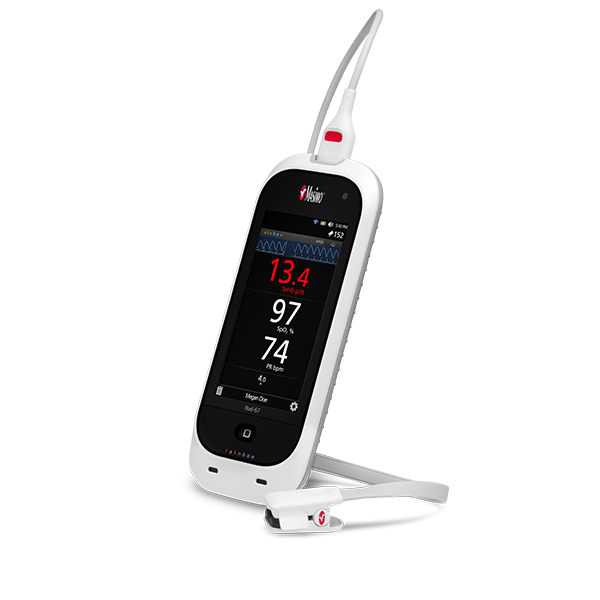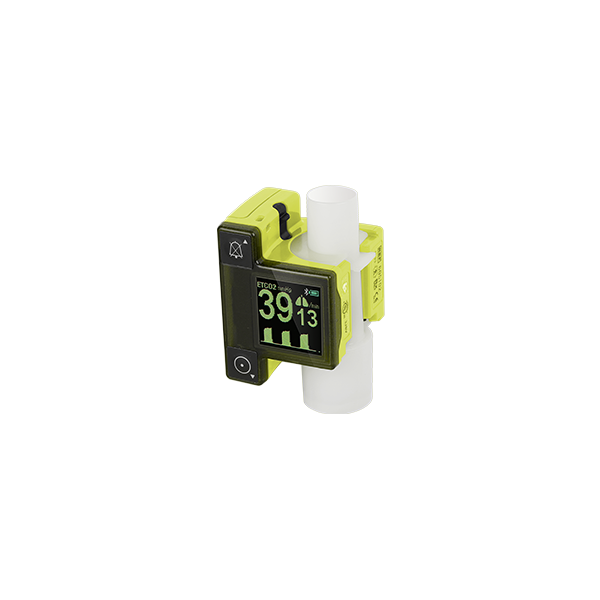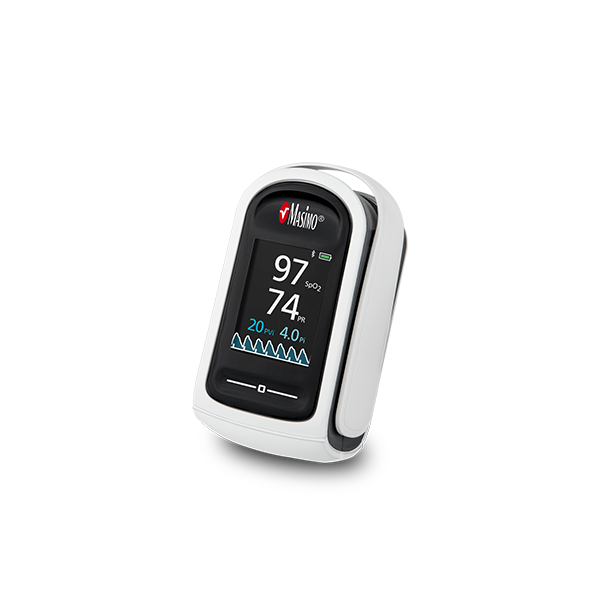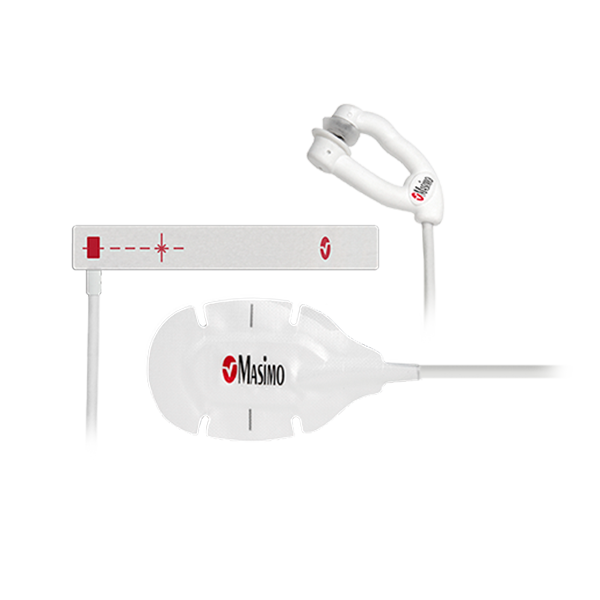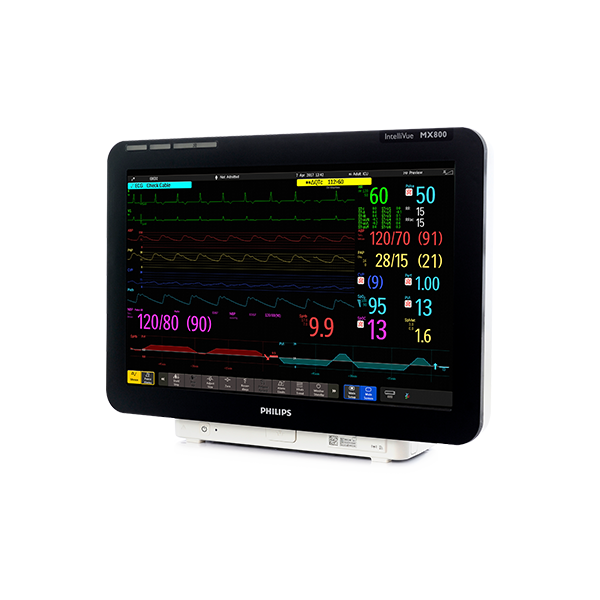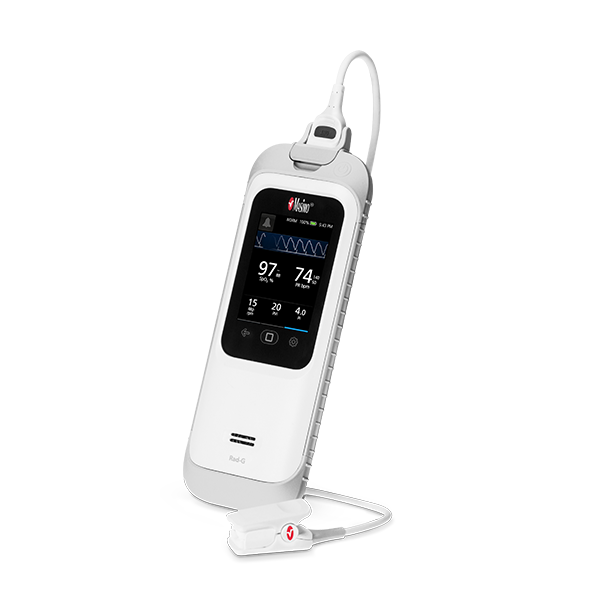Emergency Medical Services
On-the-go Measurements and Devices for First Responders
Home / Emergency Medical Services
Emergency Medical Services
For paramedics, emergency medical technicians, and first responders, monitoring and interventions are often made in challenging conditions. Masimo Pulse CO-Oximetry technology and capnography solutions enable first responders to quickly assess patients, monitor patients during transport, and alert hospitals of incoming patient status, so that staff can prepare the space, personnel, and equipment needed for appropriate and timely care transitions.
Fast, Reliable Pulse Oximetry
Fast, Reliable Pulse Oximetry
Masimo SET® Measure-through Motion and Low Perfusion™ pulse oximetry delivers reliable oxygen saturation (SpO2) and pulse rate (PR) measurements even during challenging conditions of motion and low perfusion, as frequently presented during on-scene patient assessment and emergency transport.
Monitoring for Carbon Monoxide Levels in the Blood with SpCO®
Monitoring for Carbon Monoxide Levels in the Blood with SpCO®
rainbow SET™ technology is a platform of noninvasive measurements and physiologic parameters that can provide deeper insight into a patient’s status. SpCO, Masimo’s original rainbow® parameter, measures carboxyhaemoglobin, which forms in red blood cells upon exposure to carbon monoxide (CO).
Carbon monoxide (CO) is a colorless, odorless and tasteless gas that is largely undetectable by humans and is often unknowingly inhaled from combustion fumes and during fires by victims and first responders. CO, when bound to hemoglobin in red blood cells, reduces the oxygen carrying capacity. The U.S. National Fire Protection Association (NFPA)’s Fire Rehabilitation Standard recommends that firefighters exposed to smoke at incident scenes and during training be monitored for elevated CO levels on the scene "with a portable exhaled breath CO monitor or a CO-Oximeter (a pulse oximeter designed to measure carboxyhaemoglobin)."1
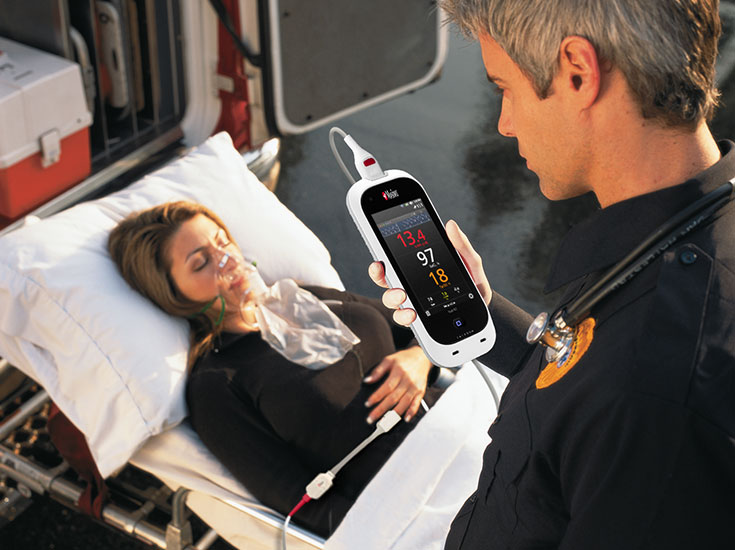
Rapid On-Scene Assessment with Advanced Handheld Devices
Rapid On-Scene Assessment with Advanced Handheld Devices
Masimo’s versatile portable device solutions provide capnography and advanced rainbow SET measurements in lightweight, compact, yet rugged handheld devices for quick on-site vital signs assessment and monitoring during inter-facility transport.
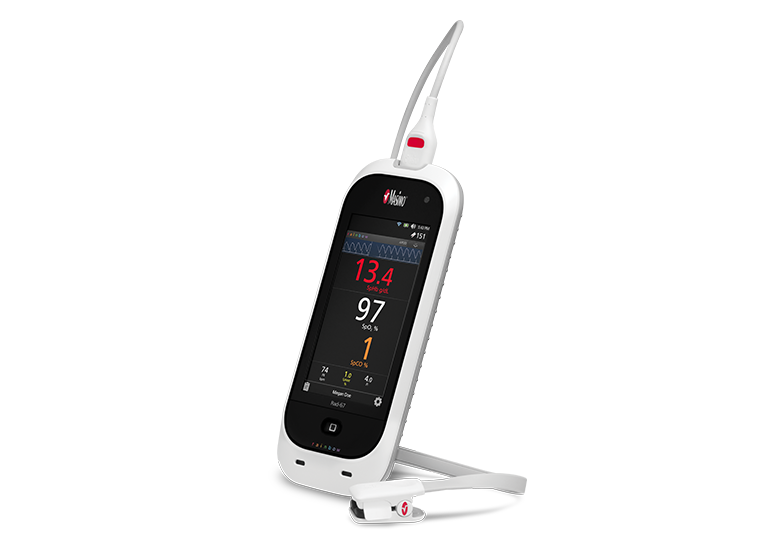
Rad-67™ Pulse CO-Oximeter® features colour touchscreen operation and rainbow SET Pulse CO-Oximetry measurements to enable quick spot-checking. Using the universal rainbow® Super DCI®-mini sensor for patients ≥3kg, clinicians can measure carboxyhaemoglobin (SpCO), total haemoglobin (SpHb), and methaemoglobin (SpMet®) simultaneously with Measure-through Motion and Low Perfusion SpO2 and pulse rate, simplifying spot-checking of multiple parameters on a variety of patient populations. This easy-to-use, portable, handheld monitor facilitates patient data download directly from the device using a wired or wireless connection.
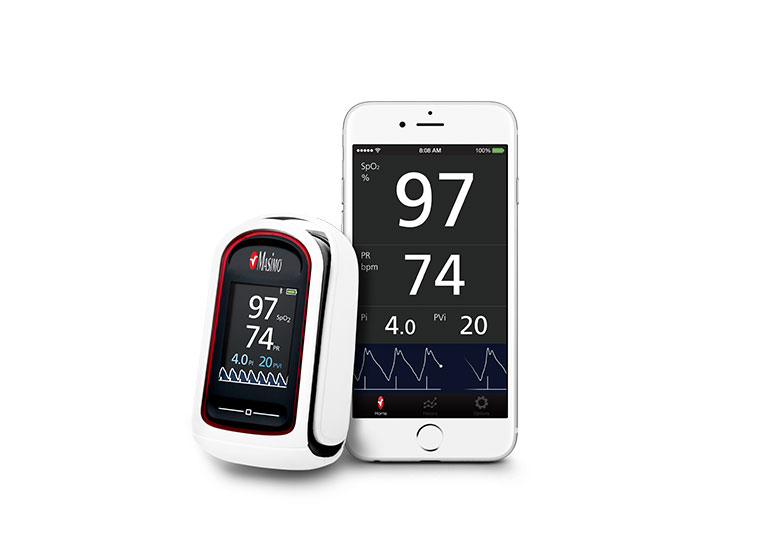
MightySat® Rx is the first fingertip pulse oximeter to feature Masimo SET®, providing quick spot-checking of SpO2, PR, Pi, and optionally pleth variability index (PVi®) in an exceptionally portable device. Measurements can be quickly communicated to and tracked and stored on compatible smart devices using Bluetooth®.
iPhone not included.
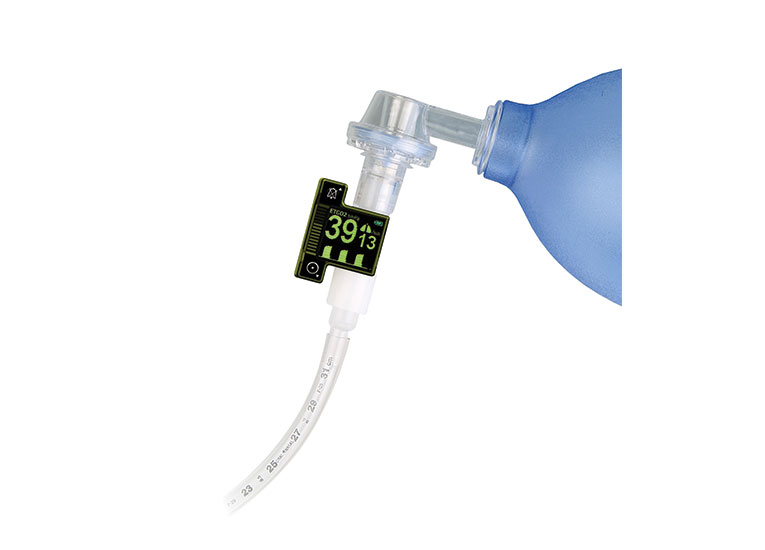
EMMA™ is a compact, portable, lightweight, mainstream capnograph that requires minimal warm-up time and provides full accuracy in 15 seconds. EMMA is available for short- and long-term monitoring of adults, paediatrics, and infants. Clear, real-time EtCO2 waveforms help clinicians and first responders confirm effective resuscitation, assess the depth and effectiveness of compressions, and recognize the return of spontaneous circulation (ROSC).2,3
Flexible, Versatile Sensor Solutions
Flexible, Versatile Sensor Solutions
Masimo provides a variety of single-patient-use and reusable sensor solutions for patients of all ages, including sensors designed to facilitate high-volume, rapid monitoring, sensors designed to stay securely in place in challenging conditions, and sensors designed for monitoring sites less susceptible to changes in peripheral perfusion.
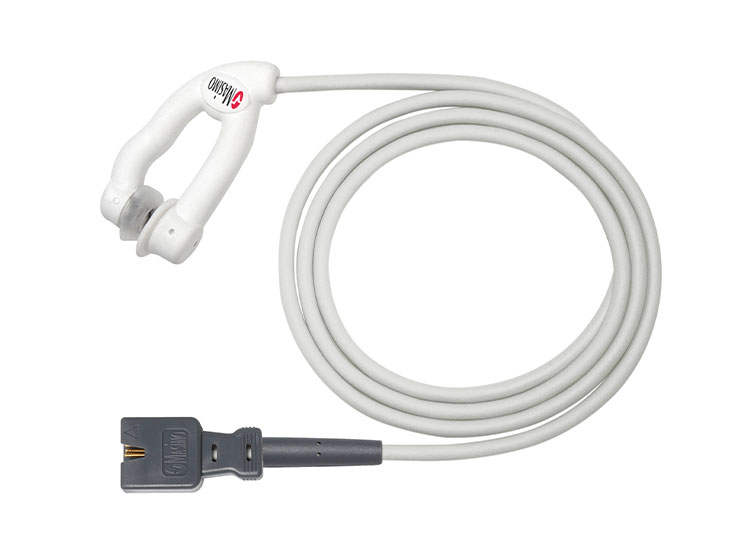
The single-patient-use E1® ear sensor is designed for secure placement in the cavum conchae, combining Masimo SET® performance with an alternative monitoring site easily accessible even during emergency situations.
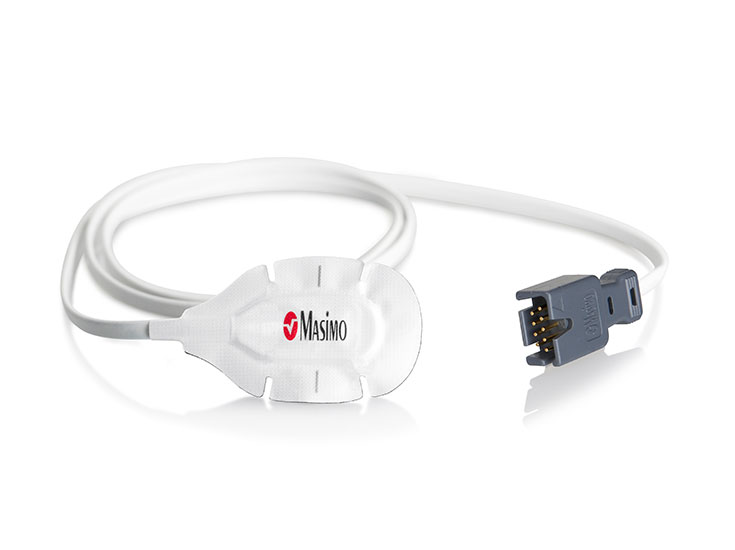
The single-patient-use TFA-1™ forehead sensor is designed for monitoring on the forehead, which may have faster detection of desaturation and resaturation, as compared to digit sensors.4 Like the ear, the forehead may also be more easily accessible than other monitoring sites during emergency situations.
Measurements
Measurements
Emergency Medical Services Product Solutions
References:
- 1.
National Fire Protection Association (NFPA). Standard on the Rehabilitation Process for Members During Emergency Operations and Training Exercises. 2015 Edition.
- 2.
Neumar RW et al. Circulation. 2010;122:S729-S767.
- 3.
2010 American Heart Association.
- 4.
Tokuda K et al. Anesthesiology. 2007;107:A1544.
RESOURCES
SpHb and SpMet monitoring are not intended to replace laboratory blood testing. Blood samples should be analysed by laboratory instruments prior to clinical decision making.
Masimo devices with SpCO monitoring are not intended to be used as the sole basis for making diagnosis or treatment decisions related to suspected carbon monoxide poisoning; it is intended to be used in conjunction with additional methods of assessing clinical signs and symptoms.
Rad-67 has obtained CE Marking. Not available in the U.S. or Canada.
For professional use. See instructions for use for full prescribing information, including indications, contraindications, warnings, and precautions.
PLCO-001736/PLM-11175A-0418
